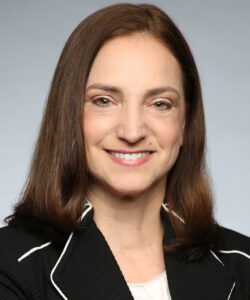Legal Ethics: ABA model rule banning discrimination, sexual harassment remains controversial
Legal Ethics: ABA model rule banning discrimination, sexual harassment remains controversial
By Sari W. Montgomery
In recent years, the legal profession in the United States, like many other professions, has grappled with issues of discrimination and harassment within its ranks, prompting the American Bar Association (ABA) to address these concerns through more concrete ethical standards. Although some jurisdictions had previously adopted rules which generically prohibited discrimination, without defining the term or including sexual harassment in the prohibition, there had been few, if any, cases involving lawyers being disciplined for violating those rules. In an effort to place more emphasis on eradicating the harassment and discrimination that plagues our profession (and we are not alone), in 2016 the ABA adopted Model Rule 8.4(g), which sought to combat discrimination and harassment in the profession by more explicitly defining what conduct constitutes discrimination and harassment that may subject a lawyer to discipline.
Overview of ABA Model Rule 8.4(g)
The model rule states:
It is professional misconduct for a lawyer to engage in conduct that the lawyer knows or reasonably should know is harassment or discrimination on the basis of race, sex, religion, national origin, ethnicity, disability, age, sexual orientation, gender identity, marital status or socioeconomic status in conduct related to the practice of law. This paragraph does not limit the ability of a lawyer to accept, decline or withdraw from a representation in accordance with Rule 1.16. This paragraph does not preclude legitimate advice or advocacy consistent with these Rules.
The Comments to the Rule go on to clarify that discrimination includes, “harmful verbal or physical conduct that manifests bias or prejudice towards others.” ABA Model Rule 8.4, Cmt. [3]. Similarly, the Comment defines sexual harassment as including “unwelcome sexual advances, requests for sexual favors, and other unwelcome verbal or physical conduct of a sexual nature,” further noting that “the substantive law of antidiscrimination and anti-harassment statutes and case law may guide application of [this rule].” Id.
Importantly, the model rule recognizes that lawyers do not lose their constitutional rights to free speech when they become lawyers. Instead, ABA Model Rule 8.4(g) is limited in its application to discriminatory or harassing conduct that is “related to the practice of law,” the definition of which goes beyond representing clients, and includes “interacting with witnesses, coworkers, court personnel, lawyers and others while engaged in the practice of law, operating or managing a law firm or law practice; and participating in bar association, business or social activities in connection with the practice of law.” ABA Model Rule 8.4, Cmt. [4].
Adoption across jurisdictions
Notwithstanding this limitation, ABA Model Rule 8.4(g) has faced withering criticism, primarily that it infringes on lawyers’ constitutional rights to free speech. Critics have voiced concerns about the enforceability and consistency of applying such a rule across diverse legal practices and cultural contexts. They also argue that the rule could lead to subjective interpretations of what constitutes harassment or discrimination. As such, the model rule has not yet been adopted verbatim by any state court, and has only been adopted in a substantially similar form by a handful of states, some of which have, in fact, faced court challenges, although none of those challenges has been successful to date. See, e.g., Cerame, et al. v. Bowler, et al., 2022 WL 3716422 (D.Conn.) (Challenge to Connecticut Rule of Professional Conduct 8.4(7) dismissed for lack of standing (case is currently on appeal to the 2d Circuit)); Greenberg v. LeHocky, et.al., 81 F.4th 376 (3d Cir. 2023) (Appellate court reversed summary judgment ruling that Pennsylvania Rule of Professional Conduct 8.4(g) violated First and Fourteenth Amendments and dismissed pre-enforcement case for lack of standing (Petition for Certiorari pending)).
In May 2024, Illinois became the most recent state to adopt a version of Rule 8.4(g) (numbered as Rule 8.4(j) in Illinois). In addition to similar, and even more explicit, provisions and definitions of discrimination and harassment than that included in the ABA model rule which limit the rule’s application to conduct “related to the practice of law,” and in an effort to avoid some of the constitutional challenges encountered by other jurisdictions noted above, Illinois adopted a version of the rule that explicitly states, “[c]onduct protected by the Constitutions of the United States or the State of Illinois, including a lawyer’s expression of views on matters of public concern in the context of teaching, public speaking, or other forms of public advocacy, does not violate this paragraph. 2010 IRPC 8.4, Cmt. [3A]. In addition, Illinois is the first state to also amend Rule 5.1, which governs the responsibilities of partners, managers, and supervisory lawyers. Specifically, Comment [2] to Illinois Rule of Professional Conduct 5.1 now explicitly requires lawyers with managerial authority within a firm to make reasonable efforts to establish internal policies and procedures designed to “promote a firm environment free of the harassment and discrimination prohibited by Rule 8.4(j).”
Conclusion
ABA Model Rule 8.4(g) and its progeny represent a significant evolution in the ethical standards expected of lawyers in the United States. By addressing discrimination and harassment more directly, these rules aim to raise awareness of what constitutes discrimination and sexual harassment, and to foster a more inclusive and respectful legal profession. Although it’s been eight years since Model Rule 8.4(g)’s adoption, due to the slow adoption nationwide and pending legal challenges, we have yet to see whether those admirable goals will be realized.

Sari W. Montgomery
Sari W. Montgomery is a partner at Robinson, Stewart, Montgomery & Doppke in Chicago, Ill. Her practice involves representing attorneys in legal ethics and professional responsibility proceedings. She can be reached at [email protected].
Share this story, choose a platform
Brought to you by BridgeTower Media
Free Weekly Newsletter
Recommended content
Reputational Management: Why values-driven communication protects law firm reputation
Reputational Management: Why values-driven communication protects law firm reputation By Gina F. Rubel and Elizabeth Ogilvie In volatile times, values are not abstract [...]
How to challenge effectively (even when you have less power)
Learning to tactfully challenge a colleague’s decisions or reasoning is a skill. Here are some ways to start the dialogue. [...]
6 succession planning mistakes lawyers make
When small-firm owners fail to smoothly retire from their practices, it’s usually due to failings many years in the making. [...]
The practical realities of running a bilingual law firm
Speaking the same language as clients does not necessarily mean they are understanding you enough to participate fully in their [...]






